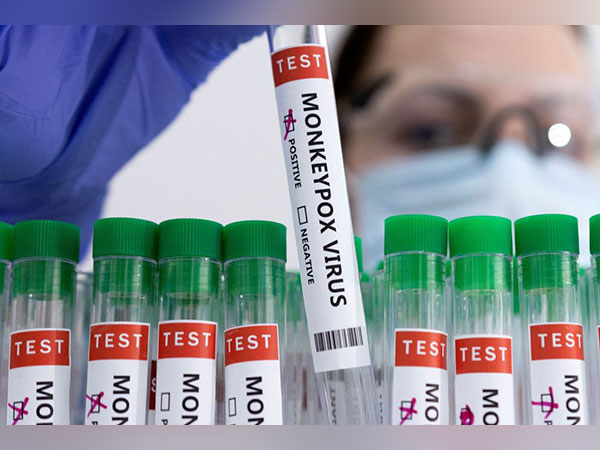Health News Roundup: US FDA eases restrictions on blood donation; WHO declares end to mpox public health emergency and more
Following is a summary of current health news briefs. US FDA eases restrictions on blood donation The U.S. Food and Drug Administration on Thursday set guidelines for blood donation organizations, recommending they screen donors based on one set of criteria, ending a restrictive policy that applied only to men who have sex with men and their female partners.

Following is a summary of current health news briefs.
US FDA eases restrictions on blood donation
The U.S. Food and Drug Administration on Thursday set guidelines for blood donation organizations, recommending they screen donors based on one set of criteria, ending a restrictive policy that applied only to men who have sex with men and their female partners. The Biden administration had been seeking to end the previous set of time-based deferrals and screening questions for people who identified as men who have sex with men and their partners. Risk assessments now applies to all potential donors.
WHO declares end to mpox public health emergency
The World Health Organization (WHO) said on Thursday it was ending a 10-month-long global health emergency for mpox, a viral disease that led to confirmed cases in more than a hundred countries. The organization declared mpox a public health emergency of international concern in July 2022 and backed its stand in November and February.
Eisai, Biogen Alzheimer's drug Leqembi would cost US Medicare up to $5 billion a year, study finds
Wide coverage of Alzheimer's drug Leqembi would raise future costs for the U.S. Medicare health plan by $2 billion to $5 billion a year, according to a study led by researchers at the University of California, Los Angeles (UCLA). Leqembi, sold by partners Eisai Co Ltd and Biogen Inc at an annual list price of $26,500, was approved this year under the U.S. Food and Drug Administration's accelerated pathway. Trial results later showed it slowed the rate of cognitive decline by 27% compared with a placebo in patients with early disease.
Teen mental health emergency visits decline in U.S. as pandemic eases, CDC says
U.S. adolescents made fewer weekly emergency department (ED) visits for mental health conditions in Fall 2022 compared to a year earlier, researchers at the Centers for Disease Control and Prevention (CDC) reported on Thursday. By late 2022, pandemic restrictions had been loosened or lifted and adolescents had generally returned to schools, with better social engagement and reduced isolation linked with improved mental and behavioral health, the researchers noted.
Germany's Merck flags decline in operating profit of up to 10% in 2023
Germany's Merck KGaA on Thursday warned that adjusted operating earnings could decline by as much as 10% this year as the outlook for its specialty chemicals business darkened, offsetting an upswing in drug prescriptions. The company said it was expecting between 6.1 billion euros ($6.71 billion) and 6.7 billion euros in 2023 earnings before interest, taxes, depreciation and amortisation (EBITDA), adjusted for one-offs. That is down from 6.8 billion last year.
Chinese baby product firms seek to age up, sell more abroad as population falls
For many of China's manufacturers of baby and children's products, painful reverberations from last year's historic decline in the country's population are already upon them. Domestic sales are shrinking and the scramble is on to develop new streams of revenue, whether that be diversifying into products for adults or boosting offerings in overseas markets with younger populations like Southeast Asia and India.
Italy's Angelini invests up to $506 million in Japan's JCR for epilepsy drug
Family-owned Italian industrial conglomerate Angelini is set to invest up to $505.5 million to fund development of a new treatment for epilepsy by Japan's JCR Pharmaceuticals, capable of penetrating the blood-brain barrier. JCR owns a blood-brain barrier technology, dubbed J-Brain Cargo, which allows biotherapeutics to reach the central nervous system via a mechanism called receptor-mediated transcytosis.
Portugal to ban smoking in most places, restrict tobacco sales
Portugal's government on Thursday presented legislation to extend a ban on smoking to outdoor areas including covered terraces and to restrict tobacco sales, as it hopes to raise a tobacco-free generation by 2040. "With this amendment, we will start today to protect the adults of tomorrow," Health Minister Manuel Pizarro told a press conference, dismissing criticism from some business groups who say the measures are too harsh and discriminatory.
FDA declines to approve ImmunityBio's bladder cancer therapy, shares slump
ImmunityBio Inc said on Thursday the U.S. Food and Drug Administration has declined to approve its combination therapy to treat a type of bladder cancer due to deficiencies in the company's application. Shares of the therapy developer slumped nearly 57% to $2.69 in premarket trading.
Pfizer CEO calls US drug price plan 'negotiation with a gun to your head'
Pfizer Inc Chief Executive Albert Bourla called U.S. plans to negotiate drug prices for its Medicare health program "negotiation with a gun to your head" and said he expects drugmakers to sue in an attempt to halt the process. "It is not negotiation at all. It is price setting," Bourla said at a Reuters newsmaker event on Thursday, referring to the Biden Administration’s signature drug pricing reform, part of the Inflation Reduction Act (IRA). The law aims to save $25 billion through price negotiations by 2031 for Americans who pay more for medicines than any other country.










